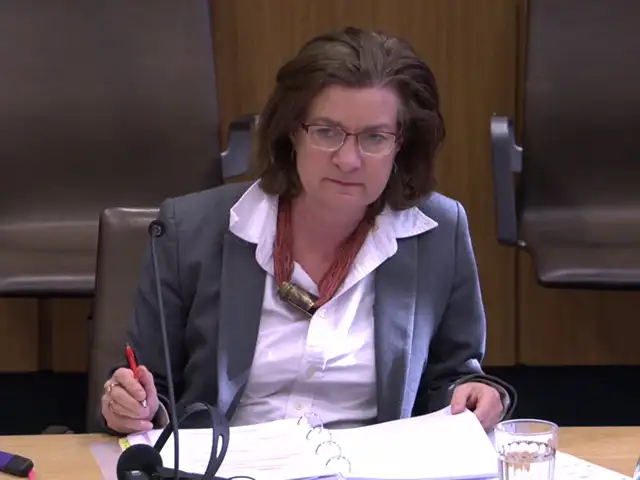Conservatives claim ‘progress in reverse’ as Labour defends investment in health services
WAITING times for NHS treatment in Wales have risen again, with 9,600 people now waiting more than two years for care – a sharp increase of nearly 15% in just one month.
The latest figures, published on Wednesday (June 19), show that two-year waits are once again climbing after a period of decline, fuelling criticism of the Welsh Government’s handling of the crisis.
Overall, the number of open patient pathways remains high at 789,929 – equivalent to one in four people in Wales still waiting for some form of treatment. Although this total has marginally decreased from March, opposition parties say the system is stagnating.
Welsh Conservative health spokesman James Evans MS said: “Labour is proving in real time that their health strategy is failing abysmally. Progress is in reverse.

“No one should even be waiting over a year for treatment. That’s why the Welsh Conservatives would declare a health emergency, to ensure that resources and the efforts of the whole Government are targeted at reducing these excessive waits.”

The number of patients waiting over two years in Wales dwarfs the equivalent figure in England, which currently stands at 171, despite the English population being over 17 times larger.
Andrew RT Davies MS, Senedd Member for South Wales Central and former Leader of the Welsh Conservatives, said: “People in Wales have lost all confidence in this Welsh Government to get our NHS onto a strong footing.
“Yet again, the worst waits in the Welsh NHS are on the up, frustrating patients and hardworking staff alike.
“The Welsh Government has to shelve its distractions, like their plans to nationalise buses, and get the government on a war-footing to finally bring these waits down.”
Welsh Liberal Democrats Leader Jane Dodds MS said: “The First Minister has failed to deliver on her promise to cut NHS waiting times of over two years to “about 8,000” by spring 2025, there are still over 9,600 pathways waiting more than two years, yet another increase.
“Confidence in the NHS is low, confidence in the Welsh Labour Government is low, and the only thing that isn’t low is the number of people waiting for treatment.
“The Welsh Liberal Democrats are calling on the Welsh Government to clearly demonstrate how the additional funding from the recent spending review will be used and to ensure that money is used to tackle the crisis in social care rather than short-term firefighting.”
Former Health Minister Eluned Morgan, now First Minister, previously pledged to eliminate all two-year waits by March 2023, and then again by March 2024. Neither target has been met.
Emergency departments also remain under pressure, with only 67.1% of patients seen within four hours in May – well below the 95% target. More than 10,000 patients waited over 12 hours, and ambulance response performance remains fragile, with only 50% of red calls – the most serious emergencies – receiving a response within eight minutes.
Government defends progress
Health Secretary Jeremy Miles acknowledged the increase in long waits but said this reflected a recurring pattern seen in April across the UK.

“It is disappointing to see the increase in long waits in April after all the progress health boards have made,” he said. “However, this is an annual trend seen in April in Wales and also the other UK nations.”
He announced a £120 million funding package to bring down waiting lists over the next year, aiming to cut up to 200,000 pathways and eliminate the remaining two-year waits by March 2026.
“This new funding will mean more and faster appointments, tests and treatments over the next 12 months. We’re asking people to do all they can to support the NHS by keeping their appointment and making sure they are fit and ready for treatment,” Mr Miles added.
The Welsh Government says it is also investing in new diagnostic centres, additional theatre capacity, virtual wards, and better coordination between hospitals and GPs.
Cancer care and ambulance pressures
Cancer performance remains below target, with only 60.5% of patients starting treatment within 62 days of first suspicion in April – down from the previous month and short of the 75% target.
Meanwhile, the Welsh Ambulance Service recorded its busiest May ever, although more than 80% of red calls were answered within 15 minutes, with a median response time still hitting the eight-minute goal.
The median waiting time for treatment across all pathways stands at 22.5 weeks – significantly higher than the 13.3 weeks recorded in England.
Senedd battlelines drawn
With Senedd elections approaching in 2026, health is expected to dominate the campaign. The Conservatives say Labour has failed to deliver on promises and wasted years. Labour says it is dealing with a post-pandemic backlog, rising demand, and a UK-wide recruitment crisis – and insists the worst is behind us.
Whether patients across Wales will feel those improvements any time soon remains to be seen.












